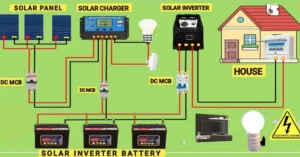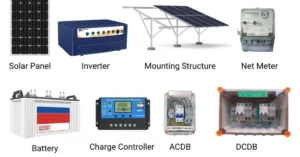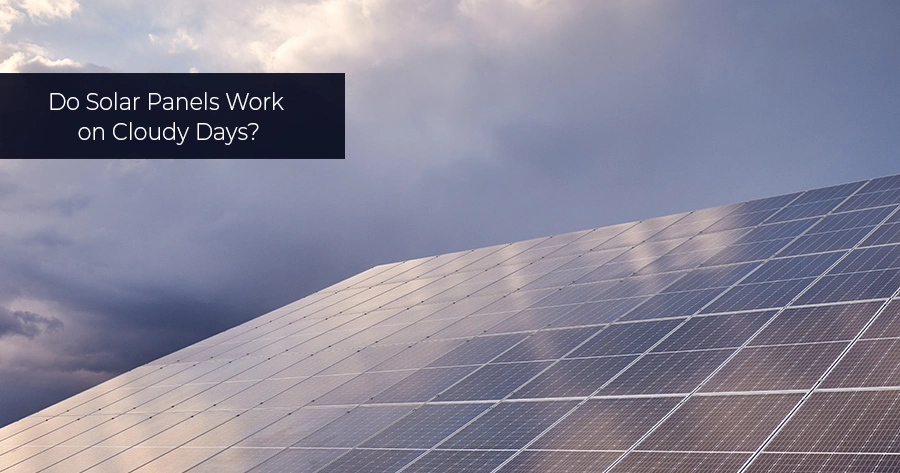As solar energy becomes more popular worldwide, many homeowners have a common question in mind: Do solar panels still work when the skies are grey and overcast?
The short answer is yes, solar panels can still generate electricity on cloudy days. However, their performance is reduced compared to sunny days. Let’s take a closer look at how solar panels work in various weather conditions and what to expect on overcast or rainy days.
How Do Solar Panels Work?
Before understanding how weather affects performance, it’s important to understand how solar panels work.
Solar panels are made up of photovoltaic (PV) cells that convert sunlight into electricity. These cells absorb sunlight and generate direct current (DC) electricity, which is then converted into alternating current (AC) by an inverter for use in the household.
It’s essential to note that solar panels require sunlight, not heat, to generate electricity. This means even on cooler or cloudy days, as long as there’s some sunlight, your panels will generate power.
What Happens on Cloudy Days?
On overcast days, the sun’s rays are partially blocked by clouds, resulting in less direct sunlight reaching your solar panels. However, solar panels can still absorb diffused or scattered sunlight, which is light reflected off clouds and atmospheric particles.
As a result, solar panels typically produce 10% to 25% of their usual output on a fully cloudy day. In certain situations, reasonable energy generation can still occur under bright overcast conditions or thin clouds.
Factors That Influence Cloudy-Day Performance
Several factors determine how well your solar system performs in cloudy weather:
- Quality of solar panels: High-efficiency panels, such as those made by REC, SunPower, or Trina, are made to function better in low light.
- Panel orientation: Panels that are optimally angled toward the sun can still capture diffused light.
- Geographical location: Some regions receive regular cloud cover but still benefit from solar energy year-round (e.g., Germany and parts of the UK).
- Time of day and season: Cloud impact can be higher during shorter winter days.
Do Solar Panels Work During Rain?
Yes, solar panels can still function in the rain, but their output is decreased, just like on overcast days. Rain has an additional advantage, though, in that it helps clean the panels by removing any accumulated dust, dirt, bird droppings, or pollen. This improves their efficiency once the sun returns.
What If You Have a Solar Battery?
Adding a solar battery storage system to your solar setup can be a game changer on cloudy days. On bright sunny days, any extra electricity generated by your panels can be stored in the battery. During cloudy weather, you can use this stored power instead of drawing electricity from the grid.
Battery storage helps:
- Maintain power availability during low-production days
- Reduce dependency on the grid
- Increase your energy savings
Don’t Let a Few Clouds Block Your Solar Dreams
Remember that solar energy systems are designed to work well throughout the year, not just in sunny conditions. Cloudy days are already factored into system designs and performance estimates.
Even regions that experience regular cloudy weather (like parts of Melbourne, Sydney, or Tasmania) are seeing great results with solar installations.
Conclusion
Yes, solar panels do work on cloudy days, just with reduced output. Thanks to modern technology, efficient panel designs, and battery storage systems, you can still enjoy reliable energy generation even when the sun hides behind the clouds.







